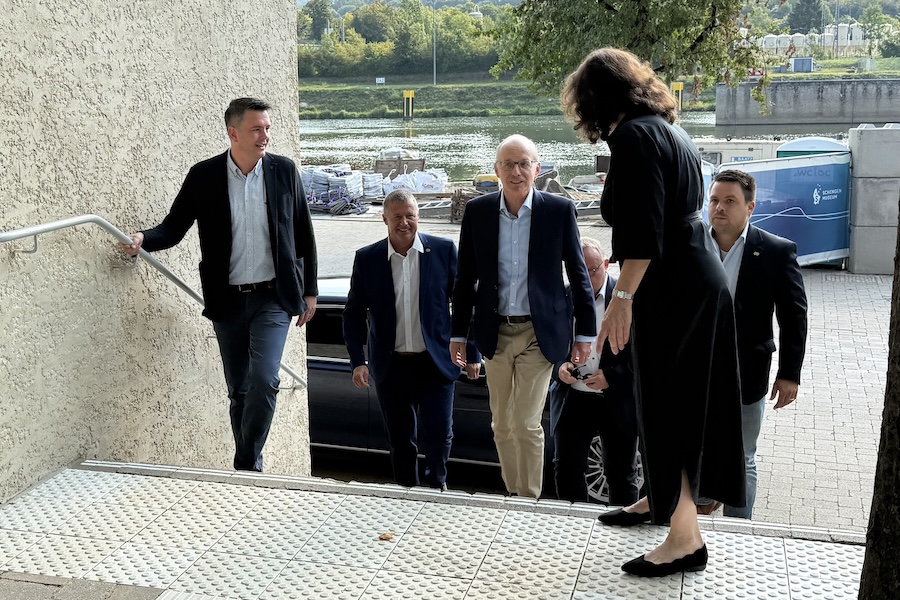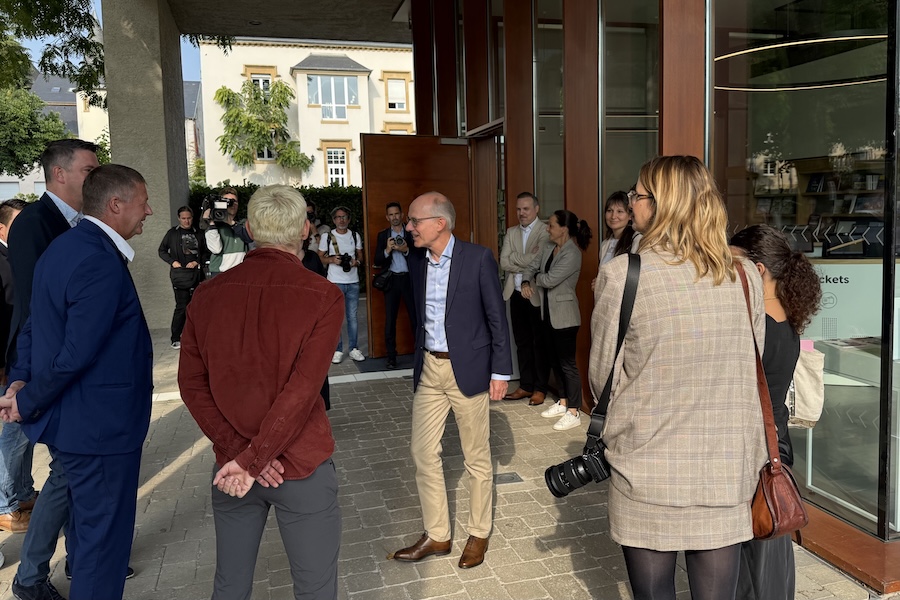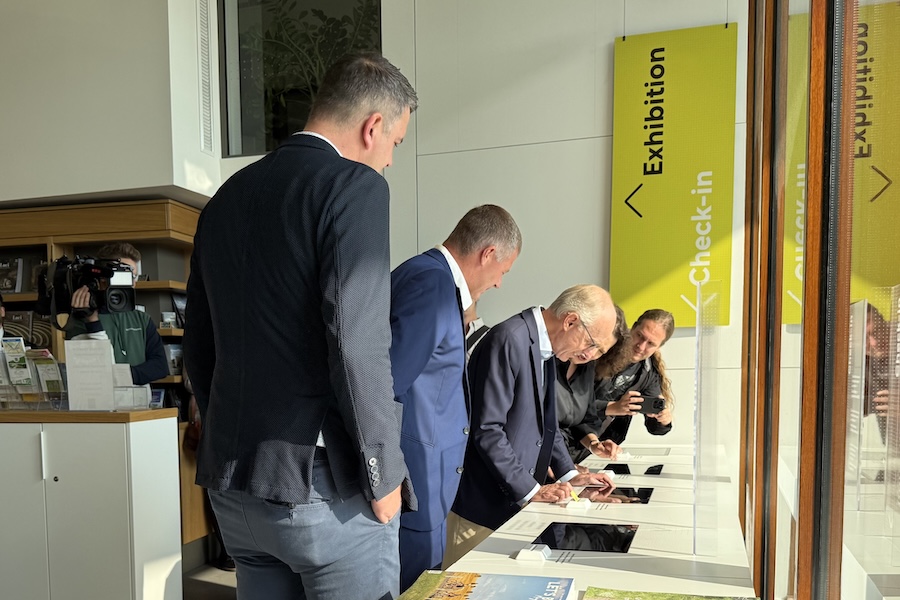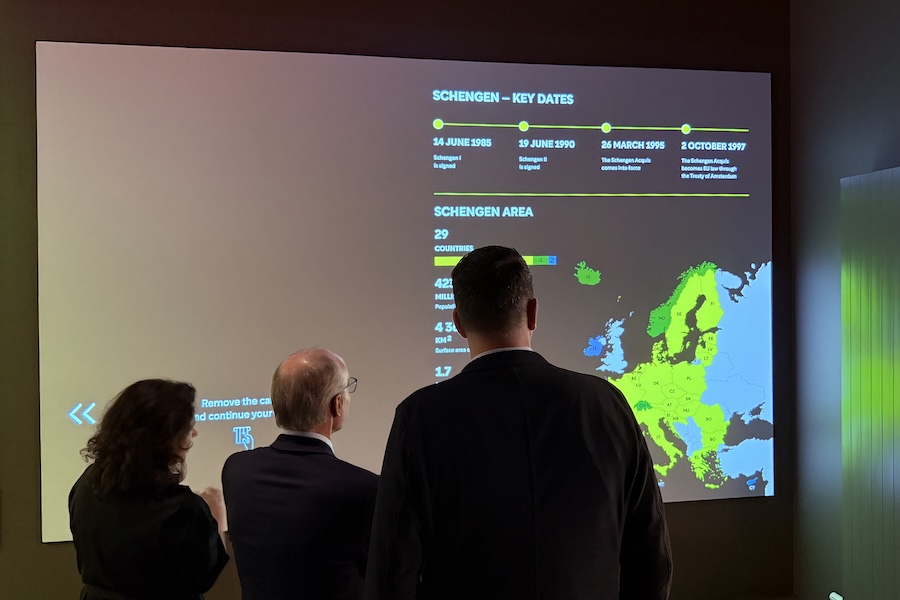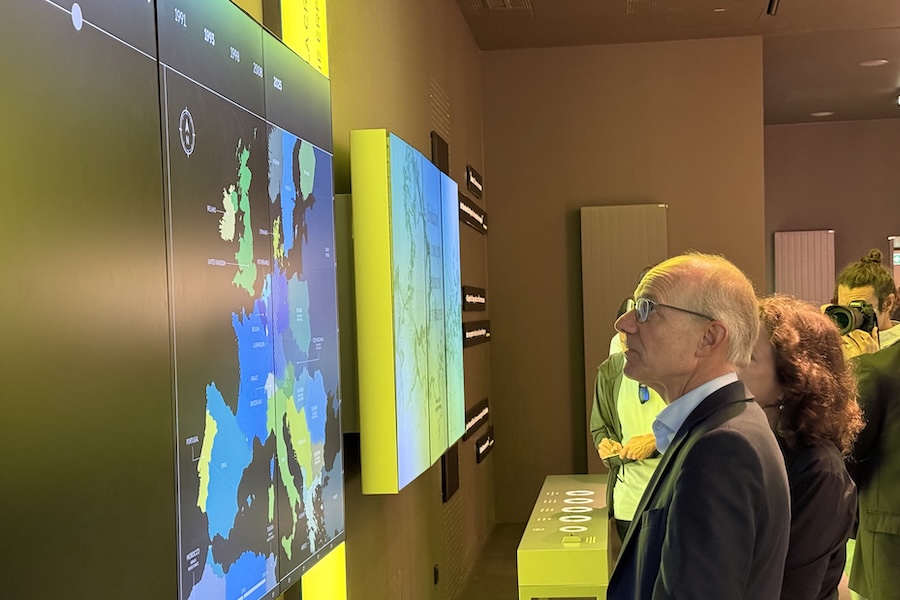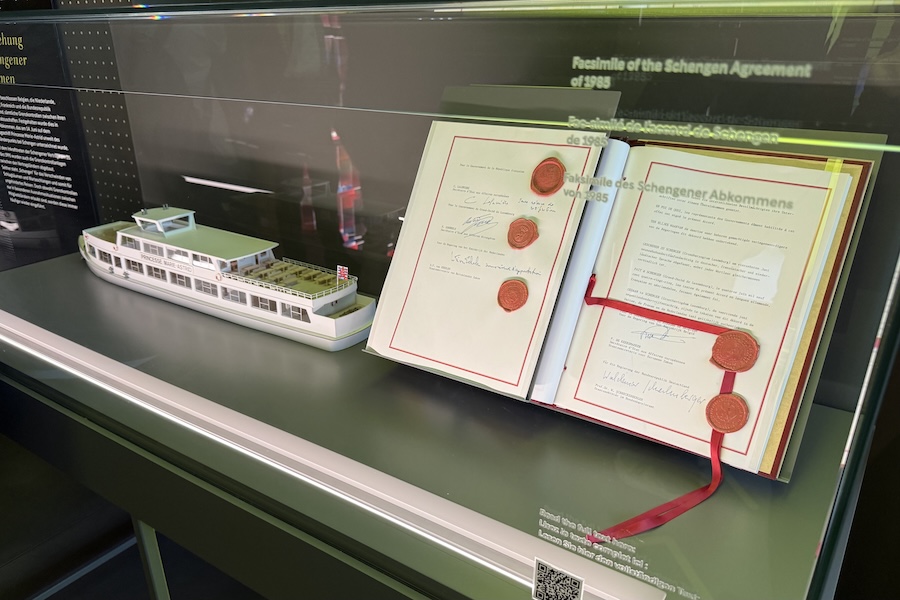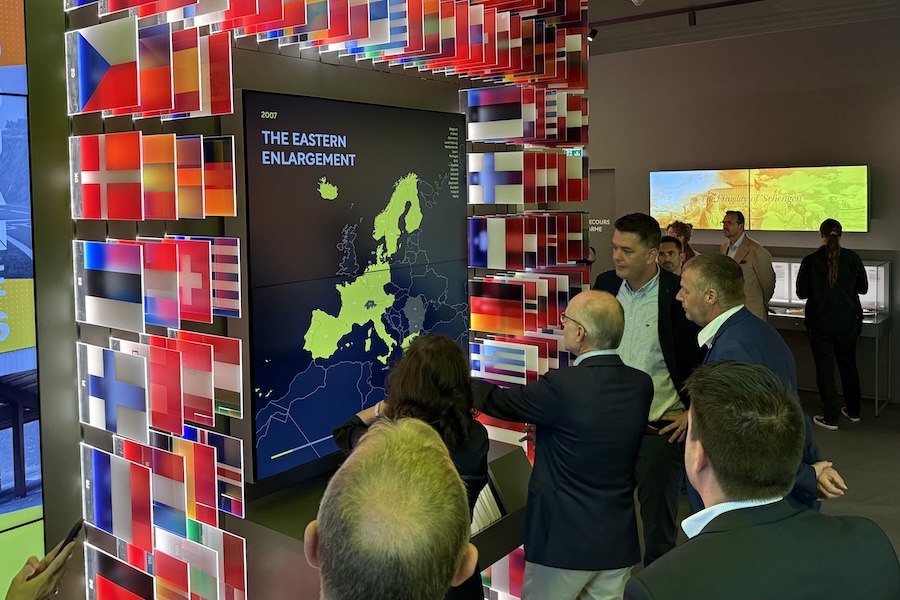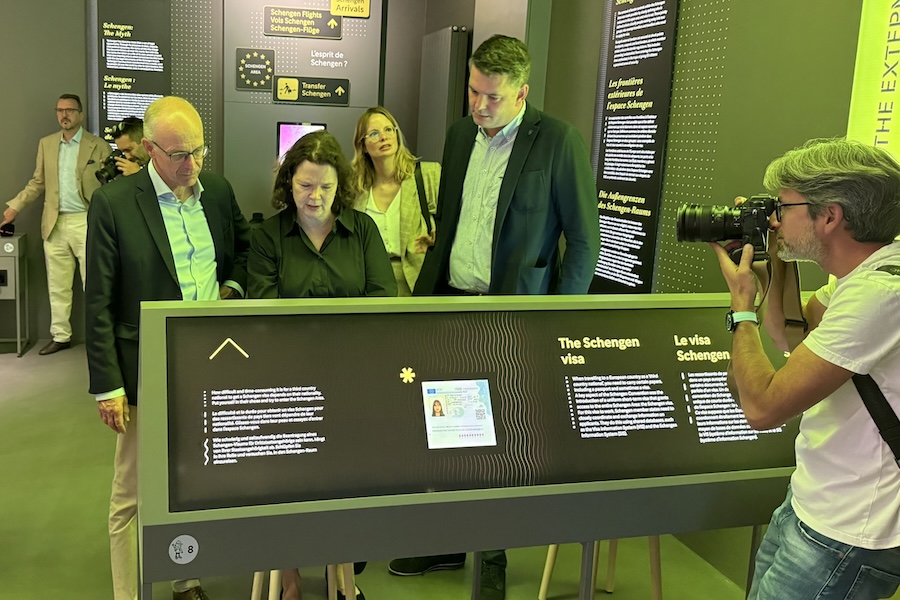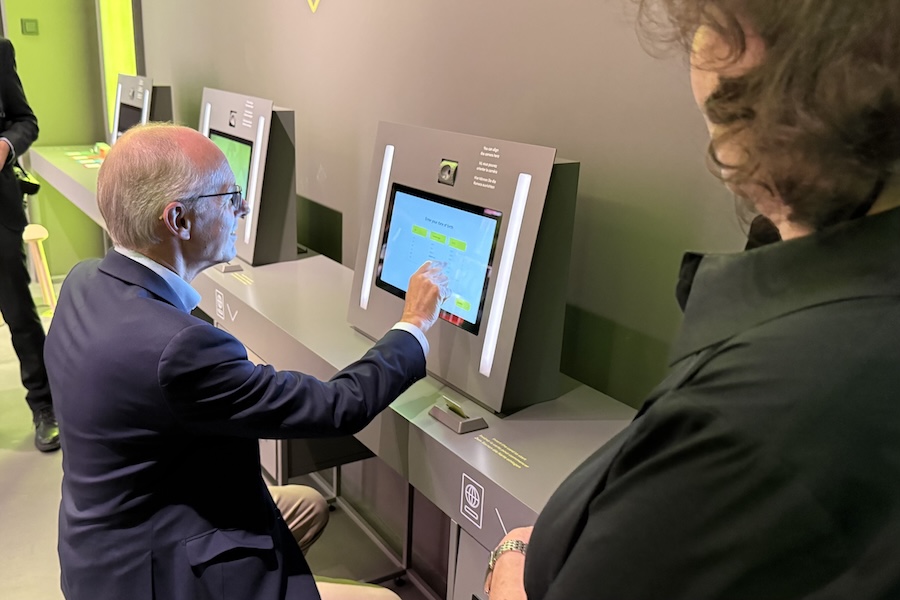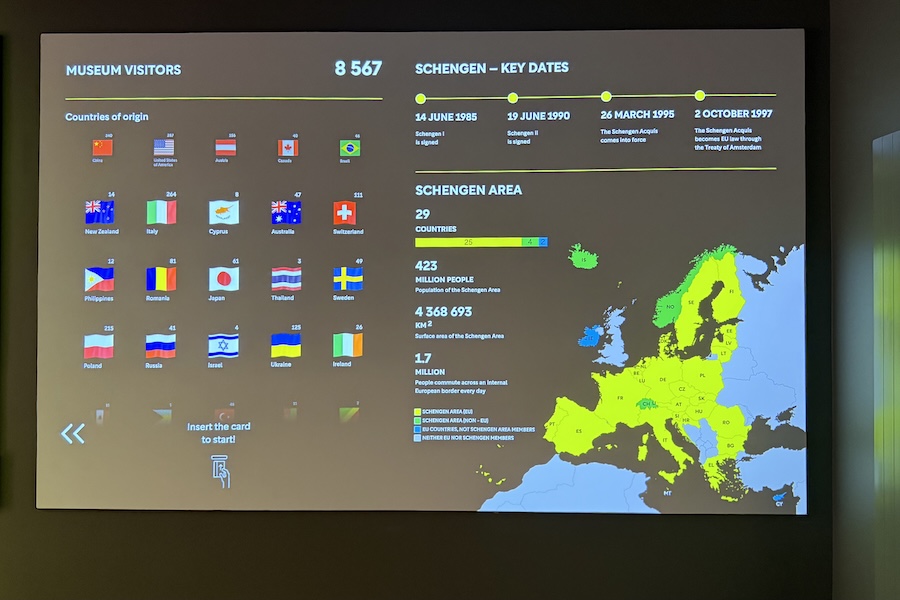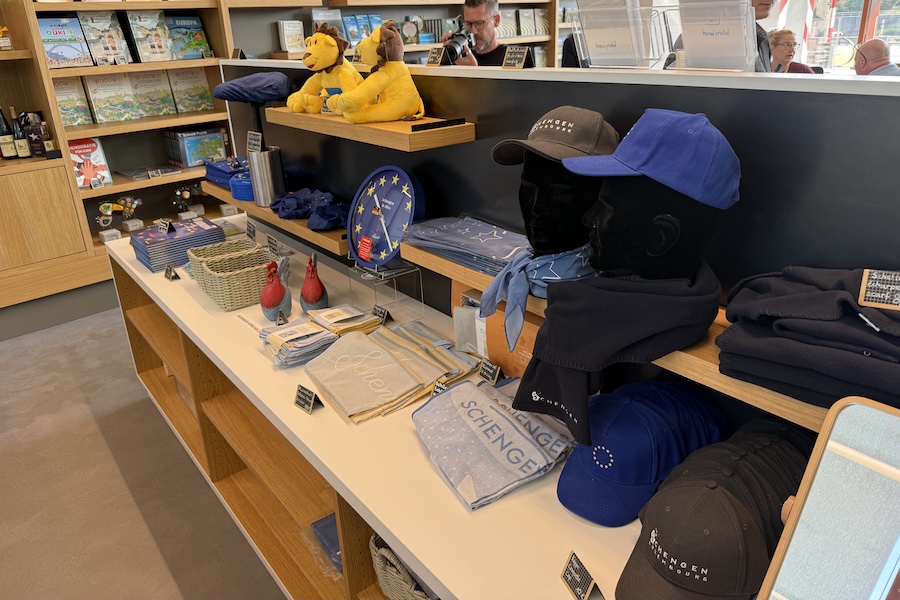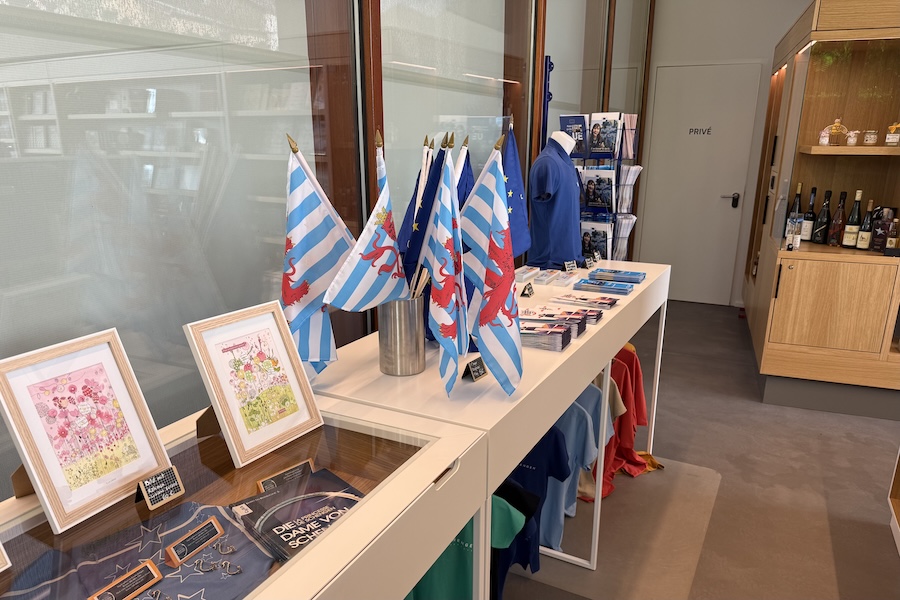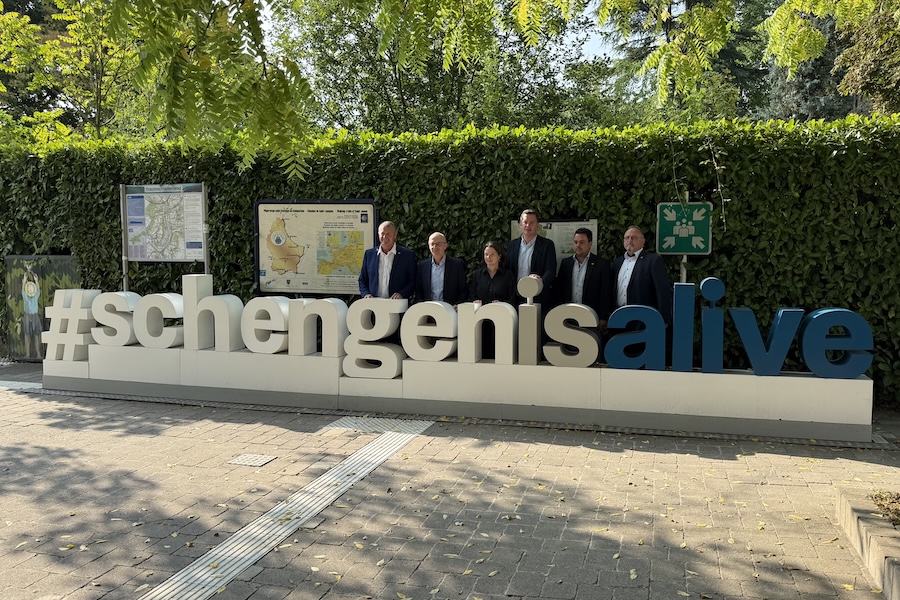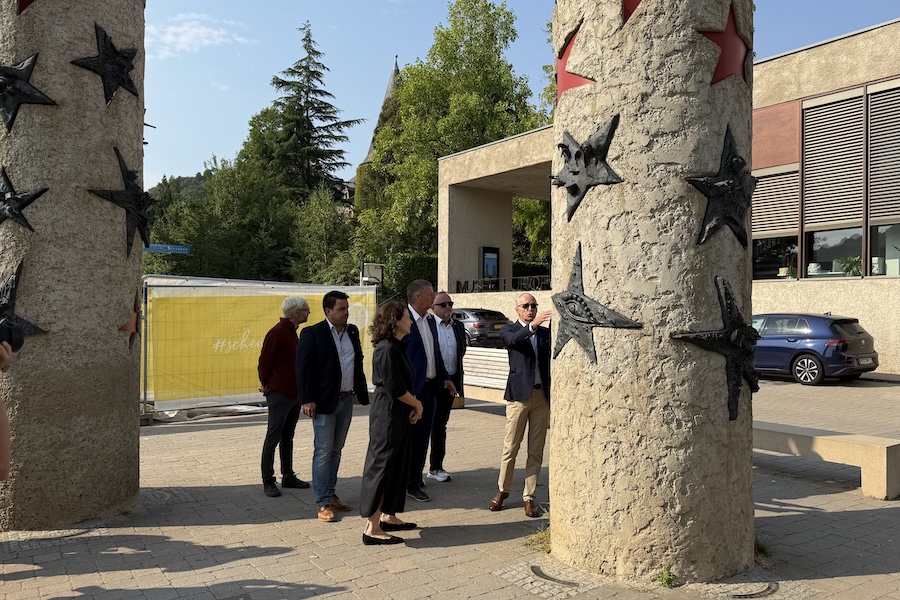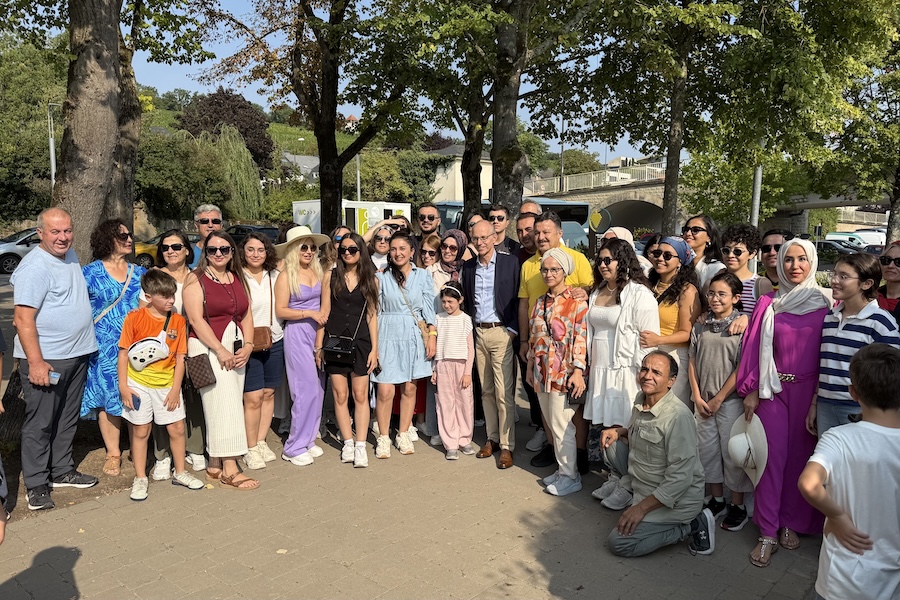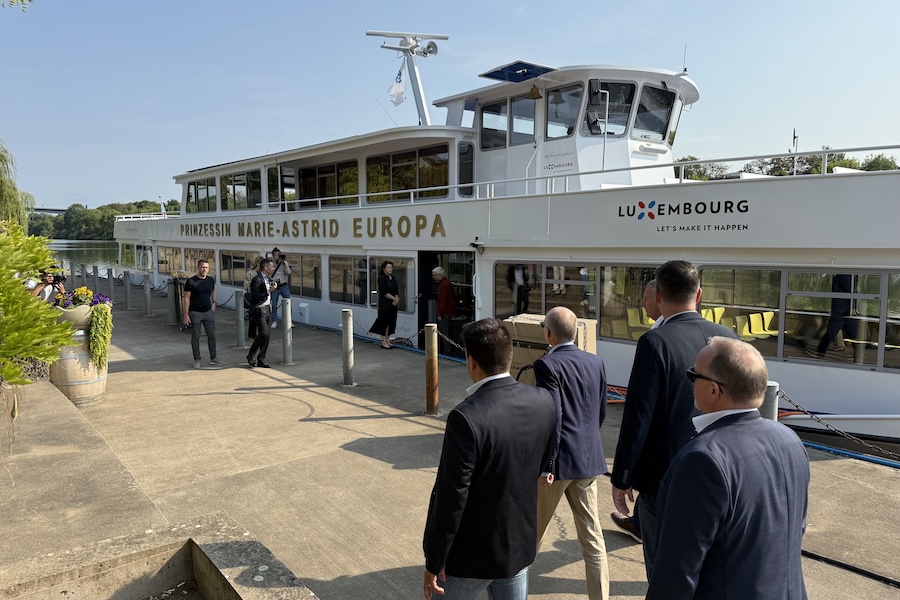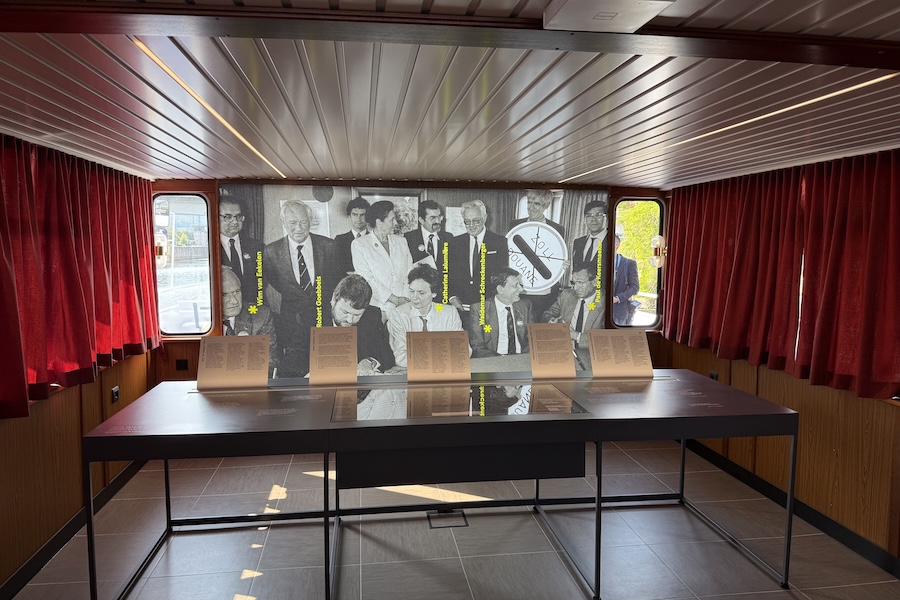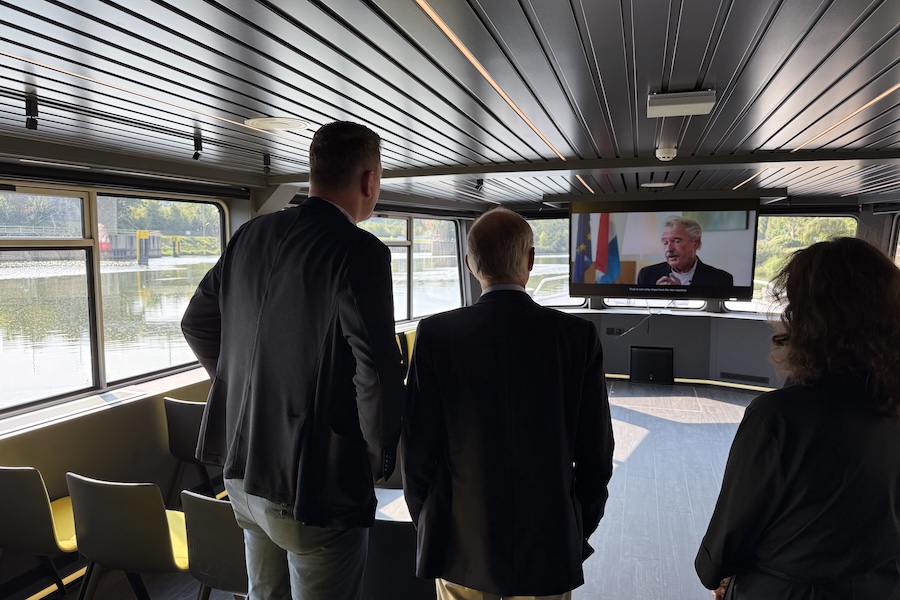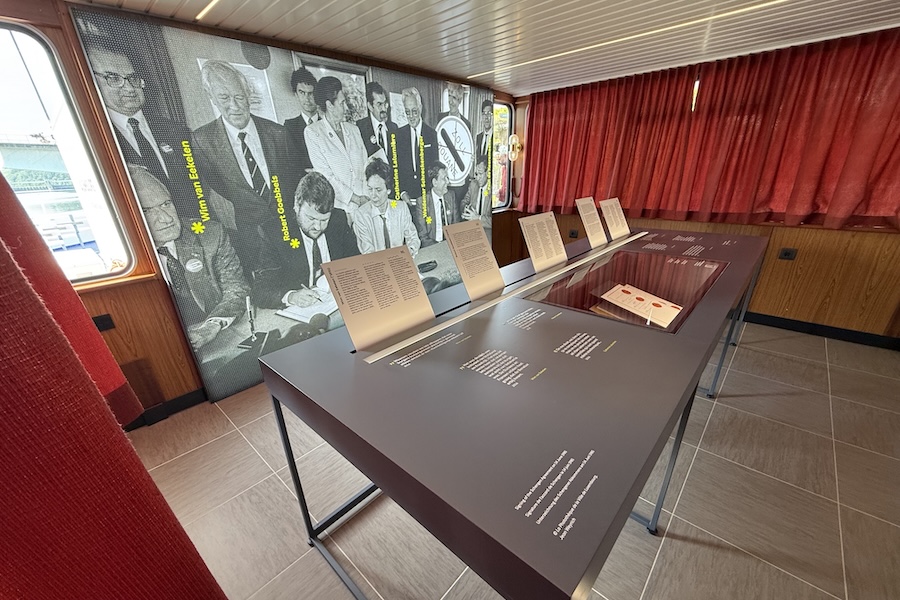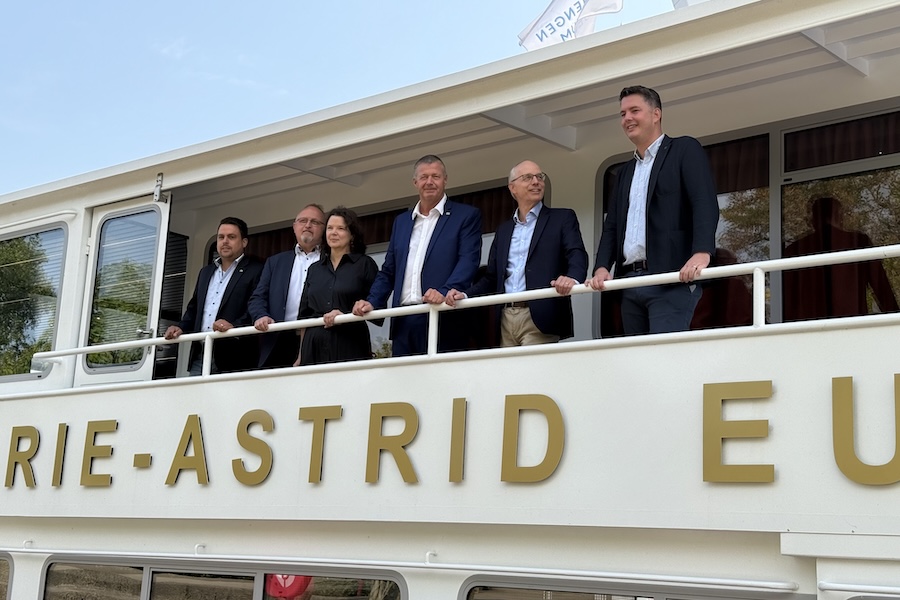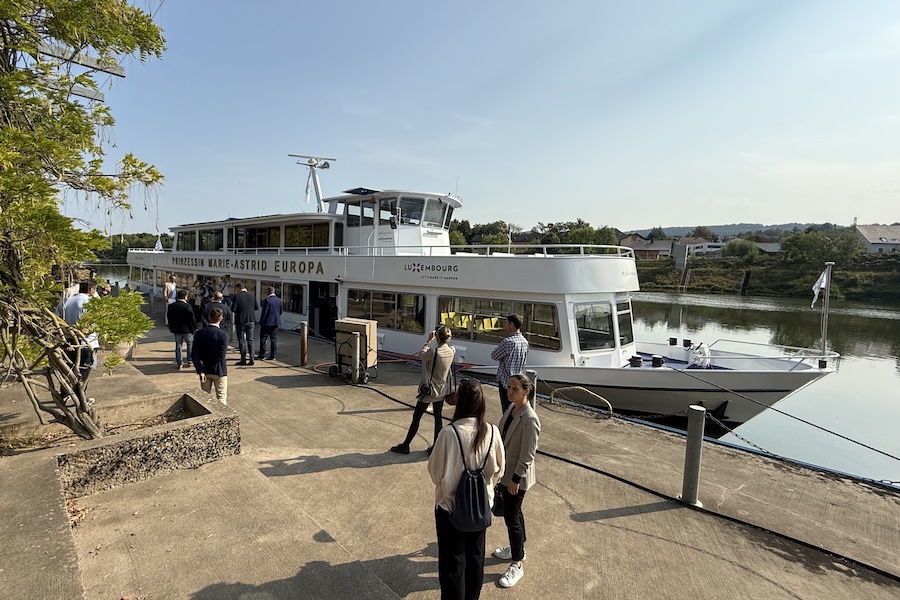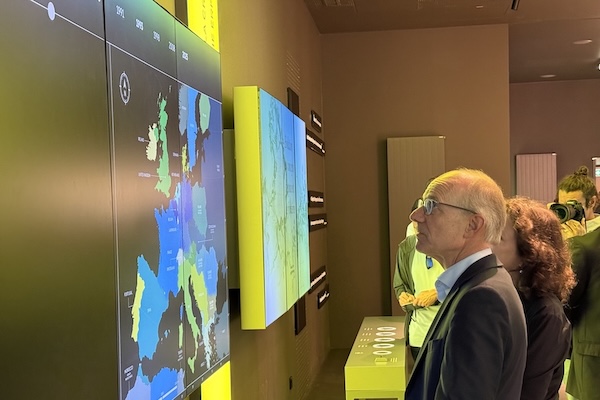 Luc Frieden, Luxembourg Prime Minister;
Credit: Ievgenii Karanov, Chronicle.lu
Luc Frieden, Luxembourg Prime Minister;
Credit: Ievgenii Karanov, Chronicle.lu
On Wednesday 27 August 2025, Luxembourg Prime Minister Luc Frieden and Minister of the Economy, SMEs, Energy and Tourism, Lex Delles, together with Michel Gloden, Mayor of Schengen, visited the European Museum of Schengen, including the ship “Prinzessin Marie-Astrid Europa”, and the “A Possen” museum in Bech-Kleinmacher.
The visit began at the European Museum of Schengen, where Director Martina Kneip presented the multimedia exhibition to Prime Minister Frieden. The museum had undergone extensive modernisation in 2024/25 and officially reopened on 14 June 2025 to mark the 40th anniversary of the signing of the Schengen Agreement.
ПAfterwards, the ministers and the mayor walked along the Moselle, where they visited the “Columns of Nations” - also known as the Monument to the Schengen Agreement - a symbolic installation featuring steel pillars decorated with stars to mark the signing of the 1985 agreement.
From there, the delegation continued to the “Prinzessin Marie-Astrid Europa”. The historic ship, on which the Schengen Agreement was signed, has since become part of the exhibition and is moored on the Moselle. Officially inaugurated on 14 June 2025 during the 40th anniversary celebrations, the vessel remains in navigable condition and may travel across Europe for special occasions. During the visit, the guests viewed a video of the signing ceremony and entered the very room where the agreement was concluded 40 years ago.
The second part of the visit took place at the “A Possen” museum in Bech-Kleinmacher, with the overall programme highlighting several key projects falling under the coalition agreement and contributing to the implementation of the national strategy for sustainable tourism. These initiatives focus on the preservation of cultural heritage, the development of wine tourism and the promotion of the Moselle region as a major destination.
According to Luxembourg’s Ministry of State and Ministry of the Economy, three major initiatives were presented to underline the touristic development of the Moselle region. These include the European Museum of Schengen and the return of the historic ship “Prinzessin Marie-Astrid Europa”, completed in June 2025, the “Wäinhaus Ehnen” project together with the Luxembourg House Concept Store in Luxembourg City, both due to open next year, and the planned redevelopment of the “A Possen” museum in Bech-Kleinmacher to offer visitors a renewed and more accessible experience.
In addition, the ministries highlighted further initiatives aimed at strengthening Luxembourg’s sustainable tourism strategy. A wine tourism action plan, introduced in May 2025 in cooperation with local stakeholders, is intended to support and structure wine tourism in Luxembourg. The ministries noted that the plan aims to “promote wine excellence and the attractiveness of the Moselle region, and strengthen the country’s visibility as a destination of choice for wine enthusiasts.”
The ministries also announced that, from this year, a new training platform will be available for those interested in becoming voluntary tourist guides. This scheme is designed to prepare participants for accompanying visitors and to enhance the quality of tourist reception nationwide. The initiative complements existing programmes of the Moselle Regional Tourism Office by expanding training opportunities and encouraging civic engagement in promoting the region’s heritage and assets.
Active tourism is likewise benefiting from investment. The bidirectional marking of hiking trails has been completed, which, according to the ministries, “reinforces the quality of the national offer.”
Prime Minister Frieden stated: “This visit, and the context in which it takes place, highlights the government’s determination to further develop Luxembourg’s tourism offer. This is not only about tourism, but also about an opportunity to showcase our history, culture and traditions worldwide. It is a way of showing how Luxembourg, despite its small size, has established itself over time as a key player on the European stage.”
Minister Delles, added: “The entire Moselle region is undergoing transformation. The government aims to accelerate and promote sustainable tourism based on memory, traditions and know-how.”
He stressed that wine tourism is a central pillar for the region: “It contributes to the development of the Moselle and local employment, while also preserving and presenting Luxembourgish and European history and customs to visitors.”

